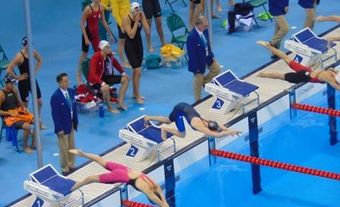This article was originally published in Maclean's Magazine on September 18, 1995
UN Conference on Women
No guest is so welcome in a friend's house that he will not become a nuisance after three days.
- Titus Maccius Plautus, 254-184 BC
To China's aging and conservative leaders, the guests had likely become a nuisance long before the three days were up. And to the more outspoken delegates among the nearly 30,000 women from 180 countries who gathered for UN-sponsored meetings in Beijing last week, the actions of their hosts left a lot to be desired as well. Even before formal sessions began, some of the visitors were complaining of poor bus service, endless surveillance and heavy-handed security. Then, early in the week, at the Fourth World Conference on Women, the wife of the President of the United States dropped a bomb. It was indefensible, said Hillary Rodham Clinton, for China to have reneged on its promise of visas for some women. She ripped into its government for denying citizens the right to speak their minds, and for its one-child policy, which forces millions of women to seek abortions or sterilization. At week's end, China fired back. Criticizing other countries, huffed a foreign ministry spokesman, was unwarranted "and against the major theme of this conference."
But that theme - setting social, political and human rights targets for women between now and the next decennial conference in 2005 - lost the spotlight to demonstrations, mostly by delegates to a nongovernmental (NGO) women's forum in the Beijing suburb of Huairou. On Tuesday, trailed by a throng of journalists and flanked by Chinese security personnel, 400 lesbians from 30 nations linked arms and paraded through the conference site, chanting "Liberté, egalité and homosexuality." They flirted with outraged Islamic women - "They are sick," fumed a Sudanese woman - and drew an overflow crowd to a workshop on flirting techniques. Among the topics: how to spot another lesbian. "More often than not," said an American woman, "being honest works in my favor." Later in the week, about 20 lesbians interrupted the main conference in Beijing by unfurling a 25-foot purple banner bearing the words: "Lesbian rights are human rights." UN security guards snatched the banner and herded the women out of the building.
The protests elsewhere were chiefly political. At one point, a dozen Scandinavian members of Parliament - 11 women and one man opposed to China's continued nuclear testing - climbed the steps of the Great Hall of the People in Tiananmen Square and handed a protest to Chinese parliamentary leader Qiao Shi. Other political manoeuvres were less amicable. Australian ambassador Michael Lightowler delivered two sharply worded protests, one objecting to verbal attacks on Tibetan exiles by China's official Tibetan delegation, the other following an attempt by Chinese security men to wrest microphones from a group of NGOs meeting at a Beijing hotel.
The dominant event of the week was Clinton's sharp-edged speech - a thinly veiled criticism of China's leaders - to the opening session. "It is indefensible," she said, "that many women in nongovernmental organizations who wished to participate in this conference have not been able to attend or have been prohibited from fully taking part. Freedom means the right of people to assemble, organize and debate openly. It means respecting the views of those who may disagree with the views of their governments." And in remarks clearly aimed at Beijing's punitive population control law, she said: "It is a violation of human rights when women are denied the right to plan their own families, and that includes being forced to have abortions or being sterilized against their will."
To all of that, China reacted in stages. On Wednesday, a day after the speech, the official Xinhua News Agency reported that Clinton had been late for a speech to the NGOs. On Thursday, foreign ministry spokesman Chen Jian told journalists: "We take note of the fact that some people from some countries made some unwarranted remarks or criticisms of other countries." On Friday, Xinhua hit its stride, lambasting the United States for its record on women's rights. "The position and conditions of Chinese women are in no way inferior to the situation of the women in the United States and are, indeed, much better on the whole." China's 1949 constitution enshrines equal rights for women, said Xinhua, but the U.S. Constitution does not: "It is quite obvious that the legal status of Chinese women is far superior to that of their American counterparts." And if that wasn't enough, it concluded, look at political action: since China's first general election in 1953, 90 per cent of Chinese women have cast ballots in one election or another, compared with the 30 to 40 per cent of American women who vote in congressional elections.
Irony overshadowed the week and the two parallel gatherings. China had lobbied long and vigorously to be chosen as host for the world conference. When it succeeded, Beijing made no secret of its conviction that Clinton's attendance would help to guarantee the success of the venture. It may well turn out to have done just that - if not for China's image, then for the women and the causes they journeyed far to promote.
Maclean's September 18, 1995

 Share on Facebook
Share on Facebook Share on X
Share on X Share by Email
Share by Email Share on Google Classroom
Share on Google Classroom


